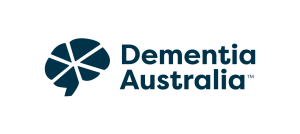
Dementia Australia - Information Session on Younger Onset Dementia in Launceston
If you live in Launceston, you might like to join Dementia Australia on 29 November at 9am (just before our expo) and hear about Younger Onset Dementia. Kate Boxhall and Jemma Polgase will talk about: • types of younger onset dementia, signs and symptoms • the impact of younger onset dementia • understanding changes in communication and behaviour • starting points for planning ahead, and • an overview of services and supports The session starts at 9am and will be held in meeting room 10 at the Door of Hope/Launceston Conference Centre.
|

Diet and Brain Health
We hear much discussion surrounding the effect of diet on individual health factors such as obesity, diabetes, hypertension, and cardiovascular health, but perhaps we should consider these factors collectively to think about the overall effect of diet on our bodies, including brain health. Diet has a significant effect on many of the risk factors associated with the incidence of dementia. The Lancet (2020) lists twelve risk factors: less education, hypertension, hearing impairment, smoking, obesity, depression, physical inactivity, diabetes, low social contact, alcohol consumption, diet, and air pollution. Of these twelve dementia risk factors, four are directly related to diet: obesity, hypertension, diabetes, and alcohol consumption, and it is possible to infer a secondary relationship between diet and some other risk factors such as depression, physical inactivity, and low social contact. The Lancet (2018) suggests that nutrition is a modifiable environmental factor that is associated with many diseases related to dementia, such as diabetes and cardiovascular disease. They also suggest that we could reduce our risk of dementia by up to 40% if we make appropriate lifestyle choices and changes throughout our life course (The Lancet, 2020). How do we know what and how we should we be eating? The Mayo Clinic (2019) suggests that a combination of the Dietary Approaches to Stop Hypertension (DASH) diet for high blood pressure and the Mediterranean diet for heart health may be the best approach. Observational studies suggest the Mediterranean-DASH Intervention for Neurodegenerative Delay (MIND) diet can reduce the risk of developing Alzheimer's disease as well as slow cognitive decline and improve verbal memory (Morris 2015). Researchers have discovered that these diets, that the MIND and Mediterranean diets, which are both high in vegetables such as leafy greens, provide the most compelling findings in dementia prevention (Van den brink 2019). Through tracking eating logs in older people, the researchers determined that the people whose diets most closely resembled the MIND diet had brains as sharp as people over seven years younger, which is a significant result because it is suggested that by delaying dementia by just five years, the prevalence of the disease is cut in half. If you are concerned about the effect of your diet on your dementia risk, chat with your General Practitioner, do some research, and make the dietary changes best suited to your health requirements.
|

Volunteer to help research and learn to sail on dry land!
A project is being set up to test whether learning to sail using a sailing simulator will improve cognitive function and general health in people with, or at risk of developing dementia. These simulators are being used in a number of centres around the world to teach people with physical disabilities (e.g. spinal cord injuries, neurological disorders such as multiple sclerosis, or social disadvantage) to sail. Eventually we will establish a formal clinical trial to test if the activity of learning to sail has an effect on the progression of the development of dementia. However we first need to run some pilot sessions to develop an optimal protocol for the proposed trial. To do this we are asking for help from people associated with the ISLAND Project.
We need 8-10 volunteers to test the simulator and help us develop a teaching protocol that can be used in the trial. We are also looking for a small number of current or former sailors who would be willing to learn how to run the simulator (this is technically very simple) so that we can develop a team of instructors who will help run the trial.
The task of sailing on a simulator can take place under specified settings that mimic sailing conditions (e.g. wind strength) and can be taught as individual components (e.g. steering, sail trimming) in a way that is not possible on the water. The individual components of sailing competence can then be brought together so that the novice sailor rapidly achieves a degree of competence and confidence that would take much longer to attain on the water, and not to mention while staying dry! There is a natural progression from simulated sailing to real sailing if a participant wishes to move on. The Derwent Sailing Squadron has a fleet of Hansa Liberty dinghies which can be accessed through Sailability Tasmania.
There is more information about sailing simulators at the website www.virtualsailing.com.au. This project is supported by the MPST Foundation.
If you are interested in contributing to this project either as volunteers to help develop the protocol or as sailors to train as instructors please contact
Alan Champion alanc@tassie.net.au or norman.saunders@monash.edu.au
|